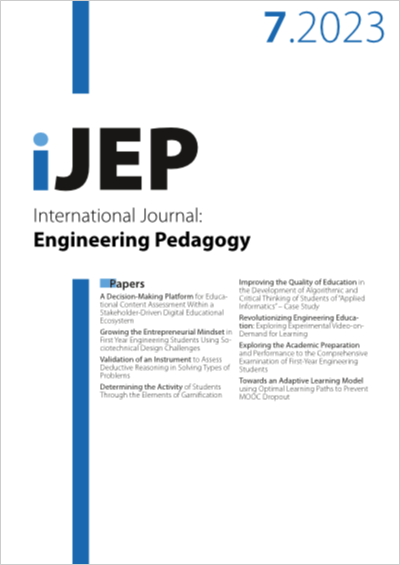Validation of an Instrument to Assess Deductive Reasoning in Solving Types of Problems
DOI:
https://doi.org/10.3991/ijep.v13i7.40153Keywords:
deductive reasoning, problem solving, validity, reliability, engineering programsAbstract
The accelerated pace of knowledge generation requires engineering students to develop different types of reasoning during their education. Deductive reasoning is essential to establishing self-regulated judgments based on reasoned argumentation. This paper aims to describe and illustrate the process by which a test of multiple-choice, open-response verbal mathematical problems was designed, applied, and validated to assess the deductive reasoning of second-semester students of two engineering degrees from a university in a region of southern Chile. The research used a non-experimental, cross-sectional approach focused on psychometric aspects. The evaluation instrument was developed on the basis of a typology of mathematical problems and a model of deductive reasoning. The resolutions of types of problems are classified according to their nature, routine and non-routine, and according to their context, real, realistic, fantasy, and purely mathematical, while the deductive argumentative model comprises the phases of data, claim, and warrant. The results guarantee sufficient content and construct validity, item discrimination, and reliability; therefore, they represent a useful tool for measuring the level of deductive reasoning among first-year engineering students during the process of solving a type of mathematical problem.
Downloads
Published
How to Cite
Issue
Section
License
Copyright (c) 2023 VERONICA DIAZ, Mg. Marcelo S.

This work is licensed under a Creative Commons Attribution 4.0 International License.



